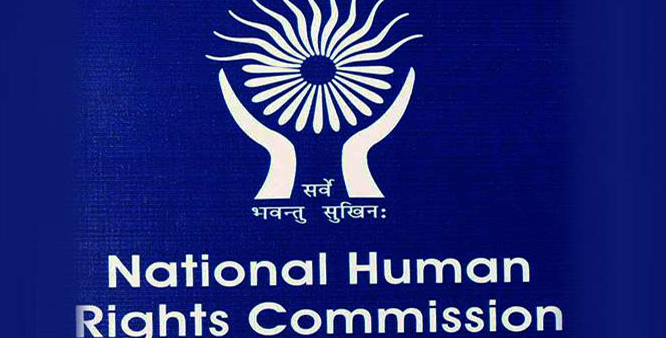

By Dr. Gyan Pathak
India’s National Human Rights Commission has been losing its global credibility very fast. Since June 1, 2024, the post of NHRC Chairperson has been lying vacant and its re-accreditation with the Global Alliance of National Human Rights Institutions (GANHRI) was deferred for 12 months, for a second consecutive year. Now, on December 23, the Union Government has announced the appointment of its Chairperson and other members, triggering a new controversy.
Two of the members of the appointment committee have said that the process of appointment was “fundamentally flawed” and restoring the global credibility of NHRC will be tough. The GANHRI sub-committee on Accreditation (SCA) had raised many objections for re-accreditation of India’s NHRC which included the lack of diverse representation in the composition of the Commission.
Now, as members of the appointments committee, the LoP in the Lok Sabha, Rahul Gandhi, and LoP in the Rajya Sabha, Mallikarjun Kharge, have expressed their disagreements, recording that the process of choosing the Chairperson of the commission was “fundamentally flawed” and its was a “pre-determined” exercise that ignored consultation and consensus.
The Union Government has appointed former Supreme Court judge V Ramasubramanian as the new Chairperson while both Rahul Gandhi and Kharge had proposed the names of Justice Rohinton Fali Nariman and Justice Kuttiyil Mathew Joseph for the position.
“It was a pre-determined exercise that ignored the established tradition of mutual consultation and consensus, which is essential in such matters. This departure undermines the principles of fairness and impartiality, which are critical to the credibility of the Selection Committee,” the dissent note submitted by them read.
Instead of fostering deliberation and ensuring a collective decision, the leaders of the Opposition said, the committee relied on its numerical majority to finalise the names, disregarding the legitimate concerns and perspective raised during the meeting.
They stated in their submission note that the NHRC has a mandate of safeguarding the fundamental rights of all citizens and “Its ability to fulfil this mandate depends significantly on the inclusiveness and representativeness of its composition. A diverse leadership ensures that the NHRC remains sensitive to the unique challenges faced by various communities, especially those most vulnerable to human rights violations.”
While merit is an important factor, they said in the dissent note, maintaining a balance reflecting the regional, caste, community, and religious diversity of the nation is equally important, adding, “This balance ensures that the NHRC operates with an inclusive perspective, sensitive to the lived experiences of all sections of society. By neglecting this critical principle, the committee risks eroding public trust in this esteemed institution.”
It should be recalled that in the appointments committee, the government has a majority. The Prime Minister heads the committee while the Speaker of the Lok Sabha, Chairperson of the Rajya Sabha, Union Minister of Home, Leader of the opposition in the Rajya Sabha, Leader of the opposition in the Lok Sabha are its members, which ensures that the government’s say is the final.
The leaders of opposition had recommended the names of Justice S Murlidhar, former Chief Justice of Orissa High Court, and Justice Akil Abdulhamid Qureshi, former Chief Justice of Rajasthan and Tripura High Courts. However, Priyank Kanoongo and Dr Justice Bidyut Ranjan Sarangi have been appointed members of the rights panel.
Gandhi and Kharge flagged the “dismissive approach” adopted by the majority of the selection committee and termed it “deeply regrettable.”
Their note read, “The NHRC’s credibility and effectiveness depend on its ability to embody the diversity and inclusiveness that define India’s constitutional ethos. The names we proposed reflect this spirit and align with the foundational principles of the Commission. Their exclusion raises significant concerns about the impartiality and fairness of the selection process.”
It is a significant development, especially at a time when India’s NHRC is awaiting peer review for its re-accreditation next year, after being deferred twice in a row. It was accredited by GANHRI in 1999 for the first time. It got a rank ‘A’ in 2006 and retained it in 2011.
Under PM Narendra Modi, its accreditation was deferred in 2016 for various reasons including the appointment of political representatives, and the failure to ensure gender balance and pluralism in NHRC staff. However, in 2017, SCA ultimately gave NHRC ‘A’ status. In 2023, SCA withheld accreditation citing several reasons including that NHRC couldn’t create conditions for operating without government interference and there were too many government officials and individuals affiliated with the ruling party in the commission.
Review of accreditation was again deferred in June 2024 for 12 months and GANHRI-SCA recommended that NHRC of India improve its processes and functions in line with the United Nations Principles relating to the Status of National Institutions (The Paris Principles).
As many as 16 Human Rights Organisations have sent a letter to GANHRI on November 26, 2024 regarding NHRC of India raising concerns about its functioning and said that Indian government has yet again failed to implement the SCA’s recommendations. They called attention to the July 2024 UN Human Rights Committee’s report that raised concerns about discrimination and violence against minority communities including Dalits, and tribal groups; the use of counter-terrorism legislation to restrict freedoms of association and expression; judicial harassment of and other forms of reprisals against human rights defenders; and other areas of apparent non-compliance.
The Committee had also noted that the NHRCI had largely failed to implement the recommendations made by GANHRI, including the lack of diverse representation, poor engagement with civil society, and the involvement of police in investigations. In this context, we strongly urge GANHRI-SCA to amend the current “A” rating of the NHRCI to accurately reflect its failure to comply with the Paris Principles and address the deteriorating human rights situation in India. (IPA Service)




